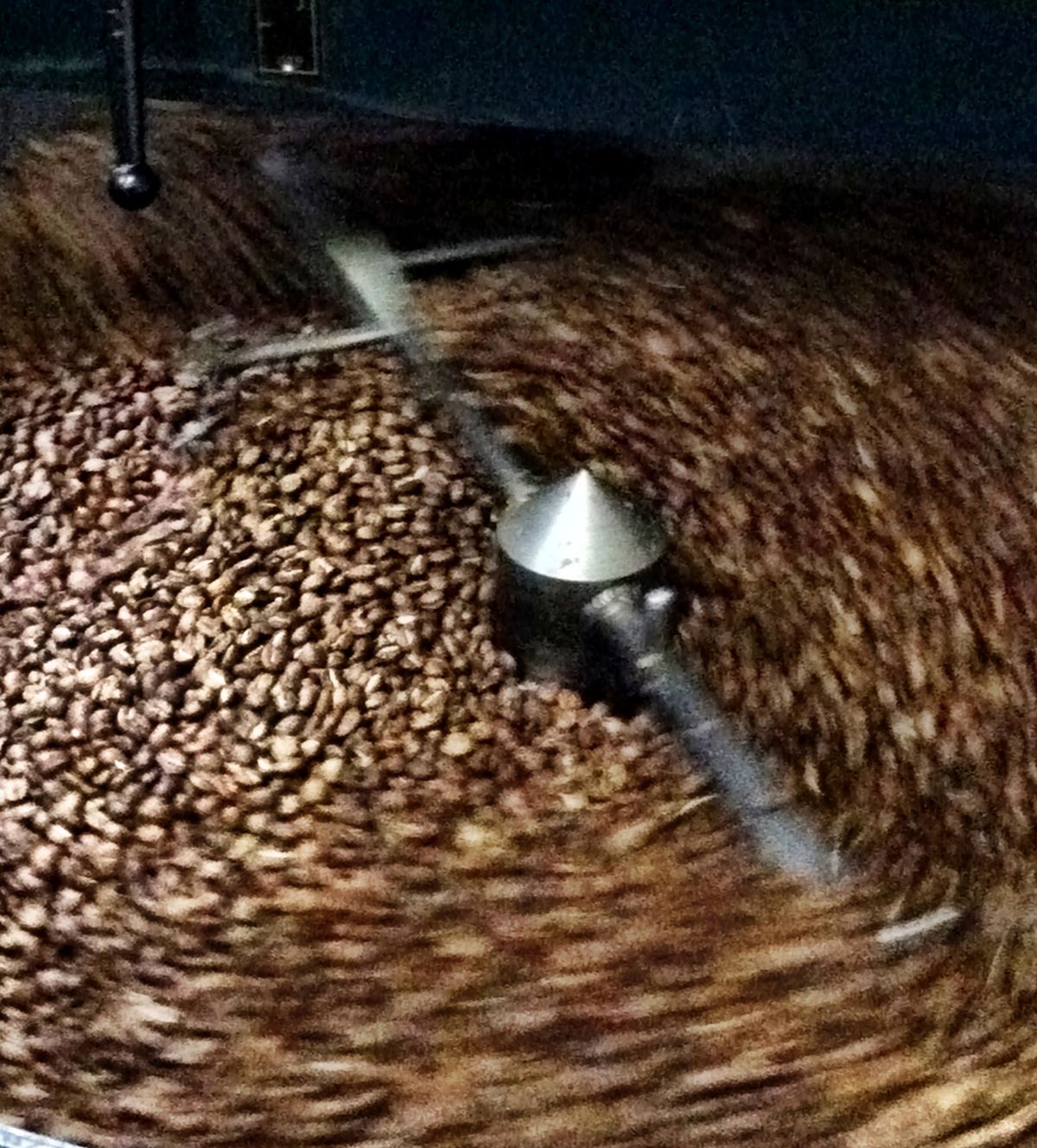Unusual Congolese coffee lands in Spokane

Deborah Di Bernardo can be passionate about coffee – but it’s not every day that she gets choked up talking about it. In the three years since Di Bernardo and her husband opened a tiny coffee roasting business in Spokane, they have been on the hunt for organic coffees that are grown
sustainably by farmers who get fair prices for their crops. Late last year, she began looking into another layer of that good-works commitment – crops grown by women.
After a lot of research on emerging coffee growers and pestering her suppliers, Di Bernardo found a distributor working with a nonprofit group in Africa to sell coffee from the Democratic Republic of Congo. Years of conflict and civil war in the country and neighboring Rwanda forced many Congolese coffee farmers to flee. Those who stayed had to sell the coffee to smugglers or try to smuggle it themselves across Lake Kivu into Rwanda. Coffee washing and drying stations were left in ruins after being occupied by the militia. Many coffee growers lost their lives in the conflict – some estimate that an average of 1,000 farmers were killed each year – or drowned as they tried to smuggle their crops, according to the SOPACDI cooperative’s website.
The cooperative is working to restore markets for Congolese coffees, promote reconciliation between ethnic groups and support women and families who lost husbands and fathers during the conflict years, according to SOPACDI. Of the 3,600 members of the cooperative, about 20 percent are women – many of them widows – and they are paid a premium to help them cover basic needs – food, housing, school and health care.
Buyers snatched up the cooperative’s first coffee offered outside of the country late last year in less than 24 hours. Roast House landed just two bags of the Arabica beans – prized for flavors of tangerine and maple syrup – about 280 pounds. The bags arrived in Spokane last week after months “on the water.”
While Di Bernardo described the origins of the beans to a collection of coffee lovers and business owners who gathered to taste the coffee, she briefly had to stop and collect herself. “I’m sorry,” she said.
It was an emotional week. After months of waiting for the coffee to arrive, she got word that it was in Seattle and began planning for roasting and roll out. Then, Monday she heard from the green room – a temperature controlled facility where green coffee beans are held – that one of her bags of coffee was stained that the coffee would need to be removed from the bag so it could be cleaned and before it could be shipped.
“It took the green room, it took the trucking company, the importer and the nonprofit … so there’s five of us trying to get that one bag of coffee over here so we didn’t have to reschedule today,” she said.
Roast House also hosted a demonstration and introduction of the Congolese coffee for customers on Saturday.
Coffee roaster Aaron Jordan experimented with small test batches so they could find the best roast for the delicate beans. Coffee roasters can adjust temperature, air flow and length of time, among other variables to alter the final taste of the coffee. While roasting a batch of the Congolese coffee last week, he used a stopwatch to carefully monitor the roasting time, pulling out small samples of the coffee to look at it and smell the beans as they roasted.
He offered the tasters three different roasts – one emphasizing the deep, dark flavors of Arabica beans, another with more of the citrus and tangerine and the final offering that he called the “love child” of the first two roasts.
“It’s a really fun coffee to work with,” Jordan said.
The final result is a sweet, delicate coffee with notes of tangerine, plum, maple syrup and chai spices. Roast House is asking the businesses who are serving it to offer it only as a pour over, French press or Chemex coffee to preserve the complex qualities of the brew. Because of the limited quantity, the coffee will sell only at Roast House for $15 per pound.
Roast House is also selling the beans to a handful of coffee shops and restaurants. Those businesses are brewing the coffee and selling it for about $3 per 12-ounce cup.